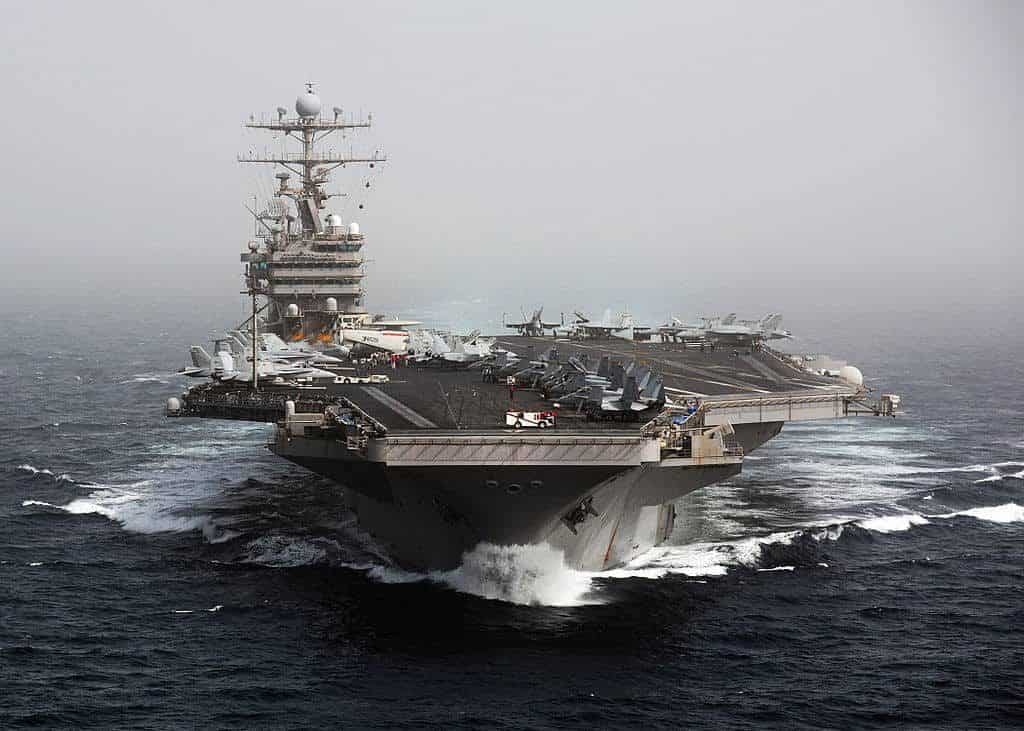At the beginning of May, the Trump administration made it clear that it would break with the neo-conservatism of previous Republican administrations.
Born of the American theorist Irving Kristol, and nurtured by his son Bill Kristol in the think tank Project for the New American Century, neo-conservative ideology had profoundly influenced the two terms of President George W Bush (2001-2009).
Central to neo-conservatism is that the desire to extend American democracy to the world trumps the desire to maintain peace abroad.
It is an ideology that gives America license to wage war in distant lands and to change the regime, all while invoking a good cause.
At the Bonn Conference in December 2001, America, drunk on the easy success of the fall of Taliban power in Kabul three weeks before, decided to install its soldiers in Afghanistan – to “rebuild and democratise” the country.
In March 2003, she invaded the Iraq of Saddam Hussein, proclaiming similar goals. The fiasco – still unresolved – of these two military operations in Islamic lands has significantly reduced the credibility of neoconservative thinking in the United States.
Donald Trump never shared that ideology. To restore American greatness does not mean to make use of its military strength.
The 45th President of the United States is not a warmonger. In foreign policy he is neither an isolationist nor a multilateralist. As his personal involvement in North Korea has shown, he wants to influence world affairs. But, for that, he is as wary of war, as much as he is of multilateral forums – which he considers ineffective.
Trump’s decision to send the naval group of the USS Abraham Lincoln nuclear carrier to the Persian Gulf should not be misunderstood. The air capabilities of the Qatar-based Central Command should be strengthened. But the Americans have no intention of waging a war on Iran.
They simply want to send a clear message of deterrence to the mullahs’ regime: any attack on American interests, even by vassal militia [GR1], will provoke an immediate military response. To bend Iran, which it blames for threats against Israel and its influence in four Arab capitals (Baghdad, Damascus, Beirut, Sana’a), the United States chose to resort to trade sanctions rather than to landing its marines.
The American retreat in Venezuela clearly shows that Trump is wary of overseas military operations. It would have been easy for him, on April 30, to send two battalions of marines to Caracas to support Juan Guaido’s attempt to overthrow the chaotic power of Nicolas Maduro.
That Trump did not do so suggests he is fearful of getting bogged down. It’s one thing to hunt down one ruler from his palace, quite another to achieve political stability across an entire country.
Instead of opting for the gunboat, Donald Trump preferred, on May 3, to pick up his phone. He called Vladimir Putin and talked with him for over an hour. The two leaders agreed that they neither of them wanted to become militarily involved in Venezuela – although the Kremlin already has some 200 mercenaries from the “Wagner Division” on the ground.
With Democrats believing him to be an agent of Russia and mounting what he has called a “witch hunt”, Donald Trump now claims to want to build trust with Moscow.
Trump has two cabinet members who are much more hawkish than he is – Secretary of State Pompeo and National Security Advisor Bolton. But ultimately, it’s always the president who decides. And Trump has made a habit of deciding alone.
Trump’s natural distrust of pre-emptive wars was reinforced by a conversation he had on China on April 13, with one of his predecessors in the White House from 1977 to 1981. Jimmy Carter believes that one reason that China is economically overtaking an America that has spent seven trillion dollars to forcibly export its values abroad, is because China has not waged war since 1979.
Trump, on the other hand, is much more comfortable with the instrument of sanctions. If Cuba continues to send weapons and “volunteers” to Maduro, he will not hesitate to inflict further damage through sanctions.
As long as the dollar remains the global currency, and as long as banks fear the fury of the US Treasury, trade sanctions will remain a crucial geopolitical instrument for the United States.
But this American happiness will end the day the dollar loses its power of reference …
This article was first published in Le Figaro.





